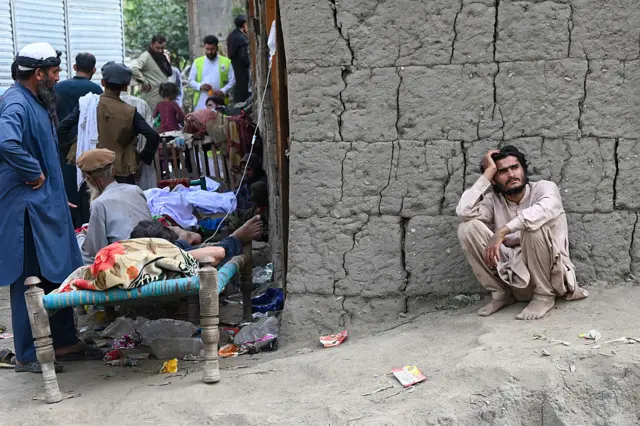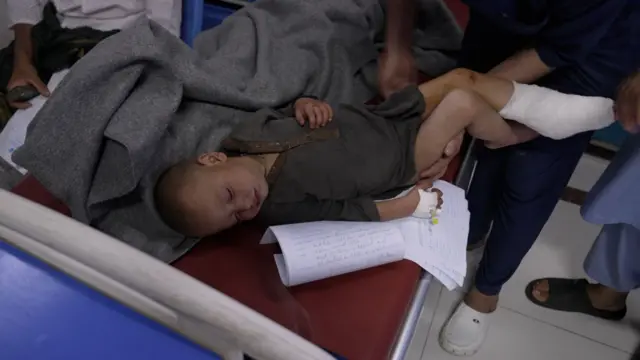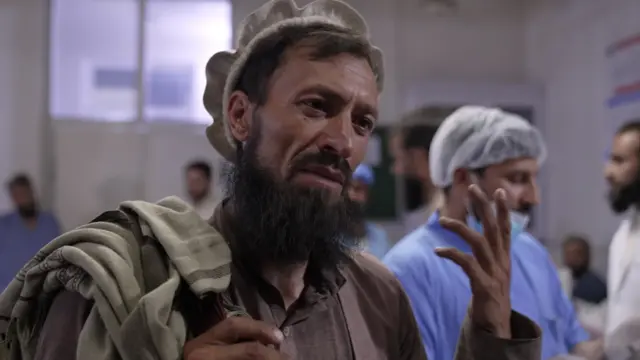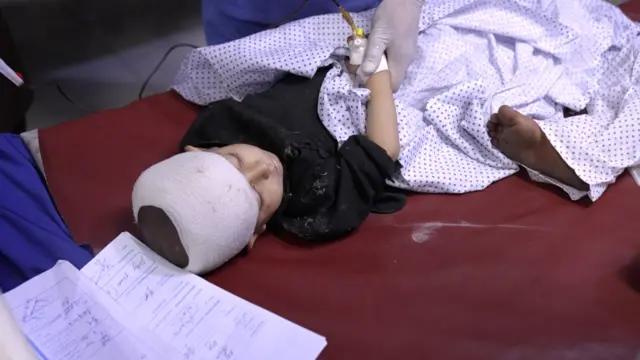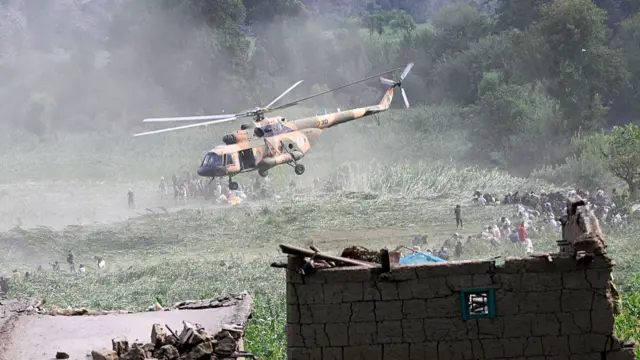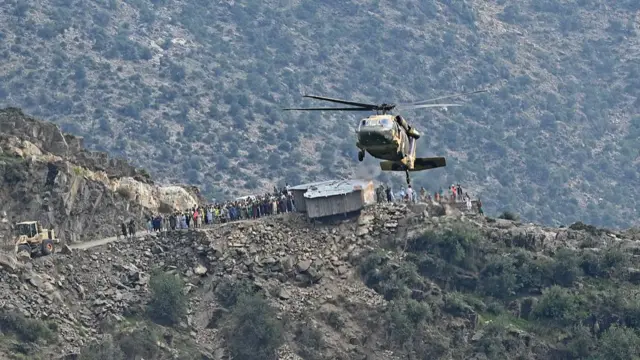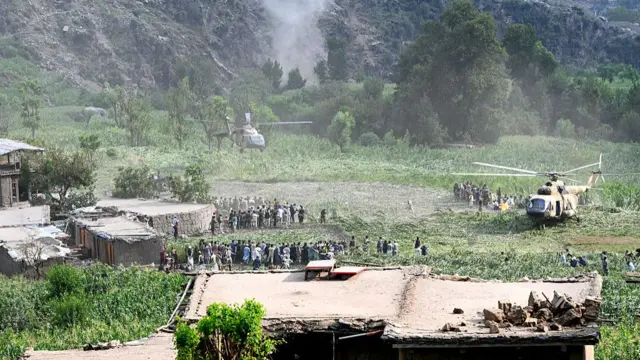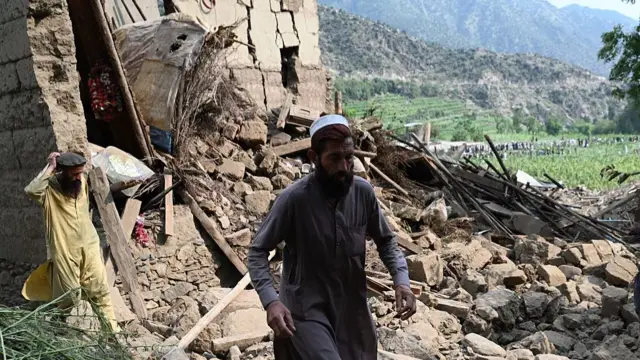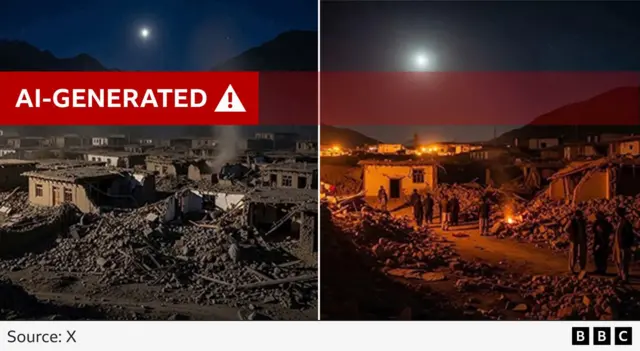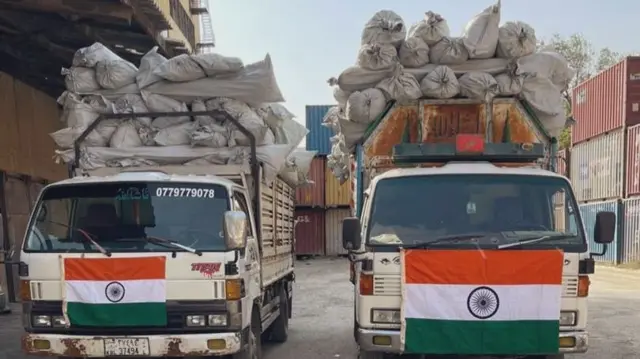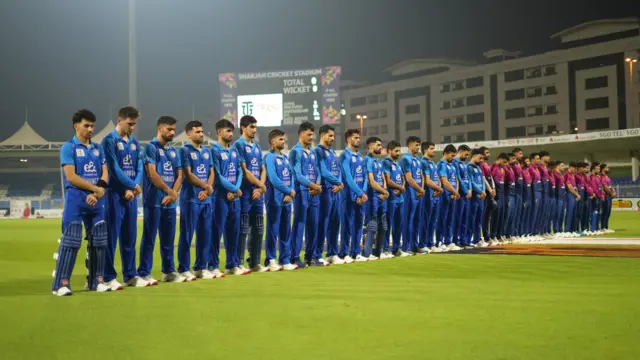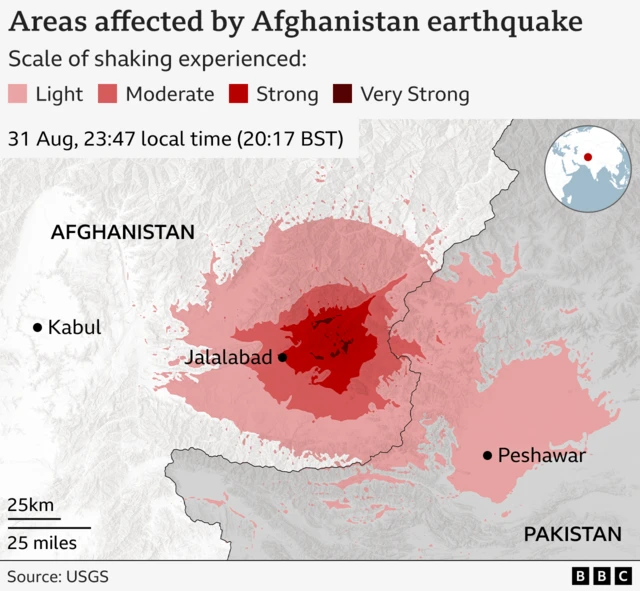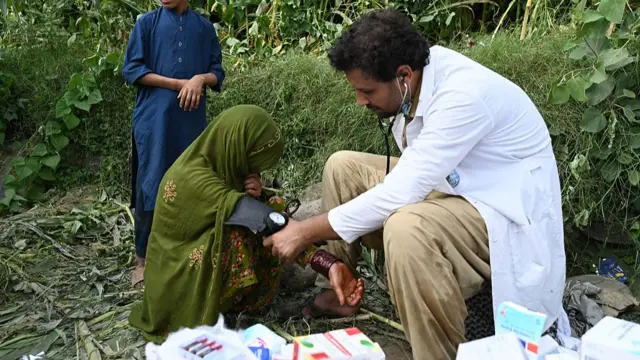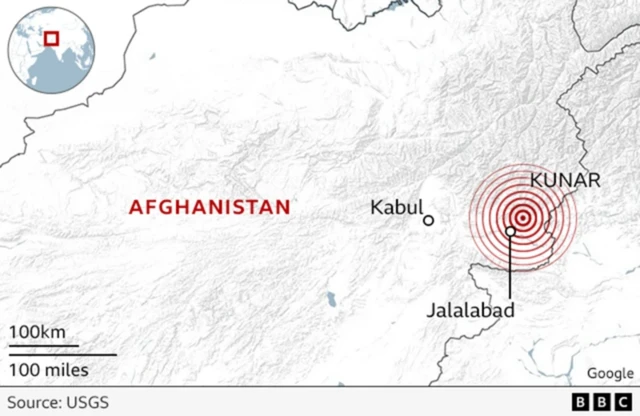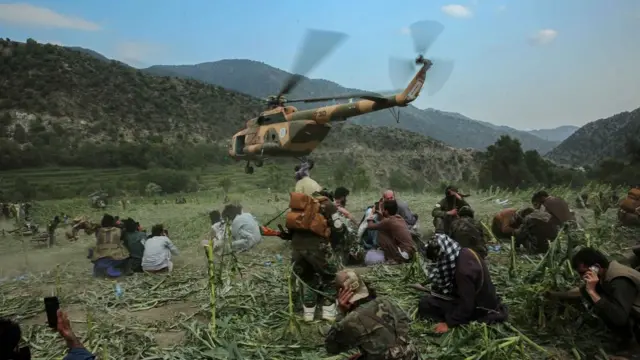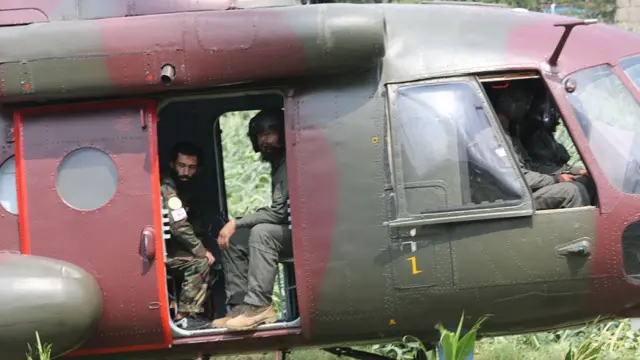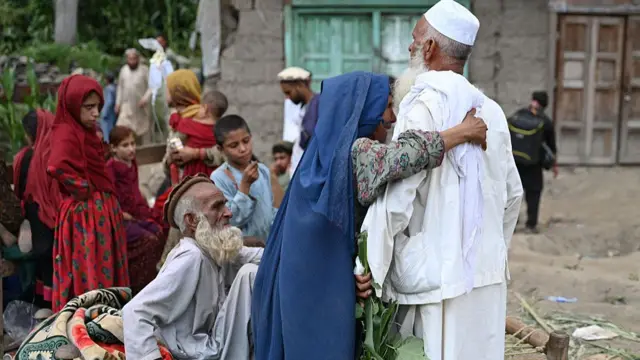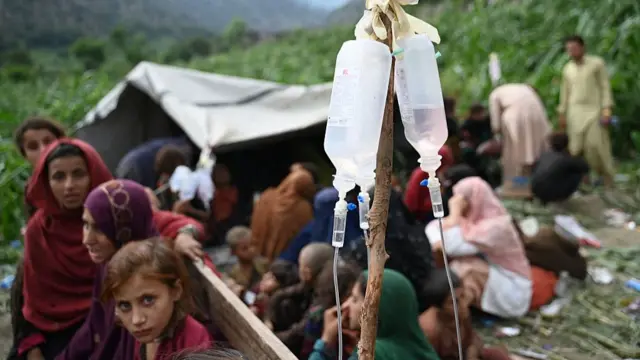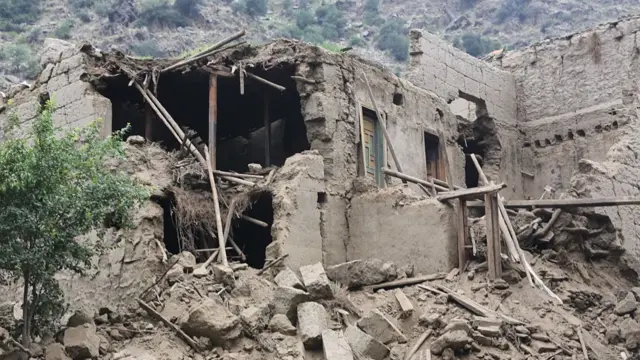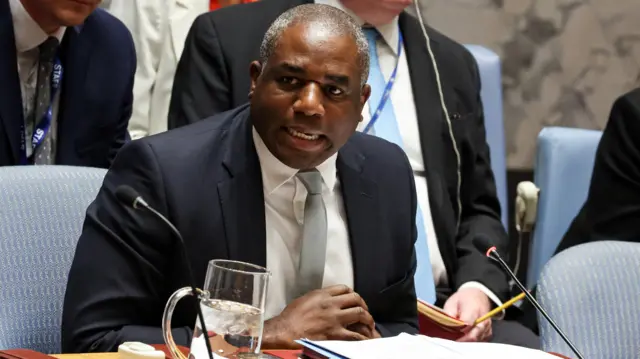Search for survivors continuespublished at 08:18 BST 2 September
The search for survivors and treat the wounded continues today, after a deadly earthquake struck Afghanistan's eastern provinces of Kunar and Nangarhar.
The region's mountainous terrain and narrow roads - some of which have been blocked by landslides - have made it difficult for rescuers and relief items to reach the quake-hit sites.
Helicopters have been used instead to airlift injured residents, who are then brought to hospitals.
Stories from survivors are now emerging: some of them have recently been deported from Pakistan, local media reported. Meanwhile, there are fears that women may not get timely aid, due to the region's strong conservatism.
Thanks for joining us. We're pausing our live coverage for now.
